10/23 Torchbearer Weekly Policy Update
Welcome back! We hope you enjoyed your weekend. Thank you for allowing us to be your trusted source for news at the local, state, and federal levels.
Local, state, and federal highlights in this week’s memo include:
- BREAKING: Feds select Indiana to be biotech hub, making it eligible for millions in funding
- SALT Task Force Discusses Income Tax Cuts
- IU, Purdue to study impact of READI economic development program
- Where Does the Money Go In Indiana’s State Budget?
- Hogsett’s $1.6B Budget Receives Unanimous Approval
- Untreated Mental Illness Costs Indiana Over $4 Billion Each Year
- Falling Fuel Prices to Reduce Indiana’s Cut of November Gasoline Sales
- With Fatal Crashes Up, Interim Roads Committee Ends Without Traffic Safety Recommendations
- Committee Concludes With Draft Recommendations For Child Care
- Citizens Energy Seeks to Withdraw Application to Supply Water to LEAP District
- White House Asks Congress for $100B to Support Israel, Ukraine, Border Efforts
- New Faces of the 2024 Legislative Session
- Share the Torchbearer Newsletter with Your Network!
- Important Dates
Let’s dive in.
BREAKING: Feds select Indiana to be biotech hub, making it eligible for millions in funding

Breaking: Indiana has been chosen for one of 31 technology hubs across the United States that will support growth in industries considered vital to economic development and national security, according to the Applied Research Institute, a Bloomington-based not-for-profit that submitted Indiana’s application to the federal government.
Go deeper: The U.S. Department of Commerce Economic Development Administration has designated Heartland Bioworks—a consortium of Hoosier entities that includes colleges and universities, industry groups and some of the state’s largest employers—as a regional technology and innovation hub, making it eligible for anywhere from $50 million to $75 million in an initial round of implementation funding.
How it works: Heartland Bioworks will initially focus on three initiatives that address “biotechnology, medical technology, genomics and synthetic biology,” including a training institute at the 16 Tech Innovation District that will provide training and industry work experience in the biomanufacturing sector. The group also plans to provide biotech companies with the tools to access manufacturers and distributors, as well as access to a partner facility that can be used to test new technologies.
By the numbers: The funding will come from the CHIPS and Science Act, a $280 billion piece of legislation passed last year to stimulate domestic research and manufacturing of semiconductors. Included in the bipartisan bill was $10 billion for a Regional Technology and Innovation Hub program, which is meant to expand tech investment to parts of the country not traditionally known as centers of innovation.
What they’re saying: “The Economic Development Administration, with this designation, confirms what we here in Indiana have known for a long time—that the Hoosier state is a global pioneer in biotech production,” ARI CEO Dave Roberts said in written remarks. “Heartland BioWorks is securing America’s biotech future, and this Hub will provide biotech startups with access to manufacturing facilities and expertise, implement the workforce training future biotech innovations require, and focus on engaging innovators in historically economically disadvantaged communities.”
The designation could also lead to millions of dollars in federal investments and “open the floodgates for more private capital in biotech research and development across the state,” said Sen. Todd Young, R-Ind., a co-author of the CHIPS, or Creating Helpful Incentives to Produce Semiconductors, Act.
“This is just the news we hoped to receive,” Gov. Holcomb said in written remarks. “Indiana has a rich tradition of innovation and leadership in both manufacturing and life science sectors. We‘ll continue to strongly support the Hub and look forward to moving forward in the competitive process.”
Interesting to note: This is Indiana’s third tech hub designation since the CHIPS Act was passed last year.
More than 130 Hoosier tech companies reported $441 million in capital investment last year, the second highest number since Indianapolis-based TechPoint began publicly tracking those numbers, and several tech companies landed big funding rounds in 2023. (IBJ)
SALT Task Force Discusses Income Tax Cuts
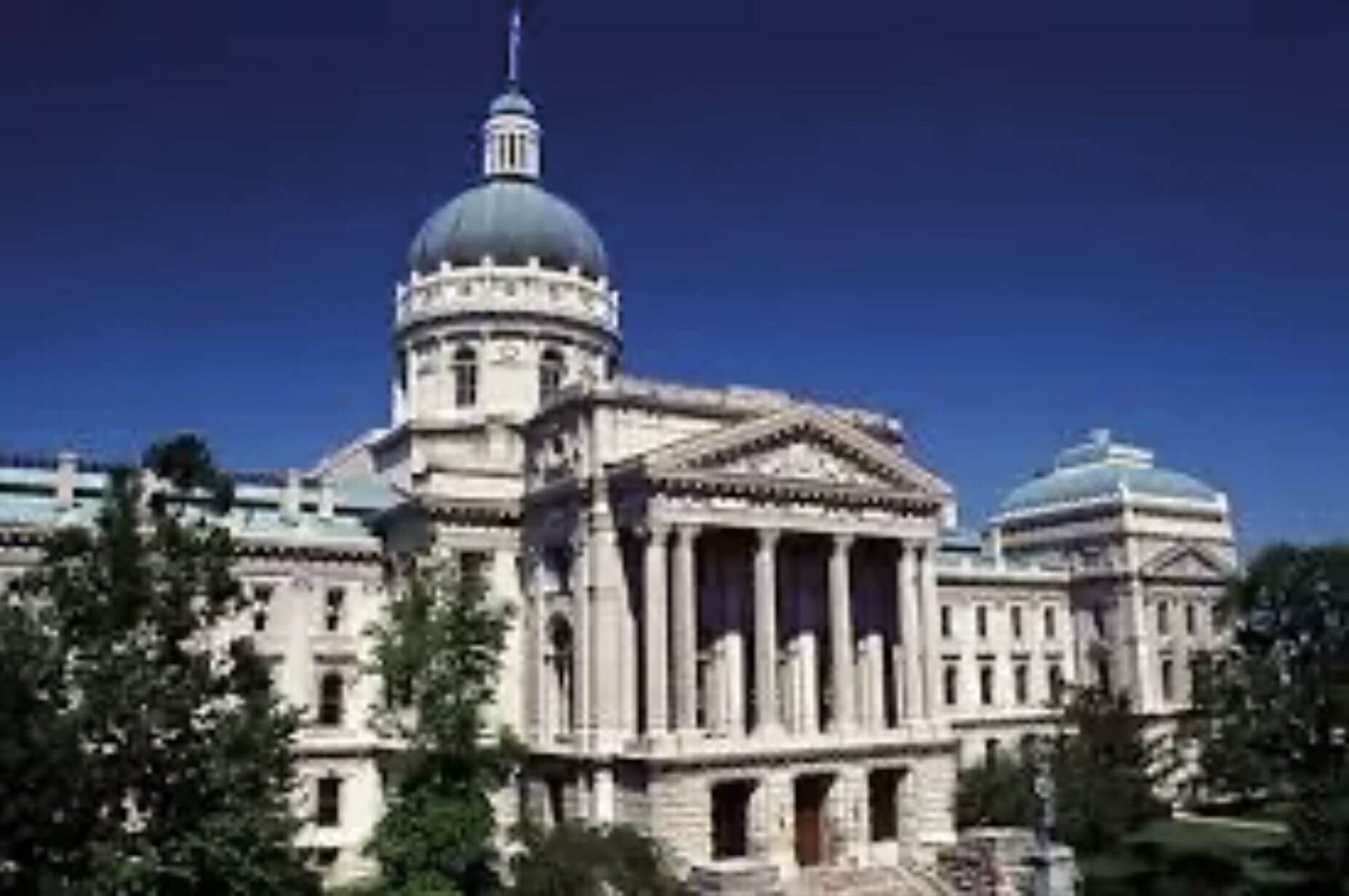
Axing Indiana’s individual income tax and replacing just half the revenue with a sales tax hike would cost the state’s poorest residents an additional $62 and hand the top 1% of earners a $30,000 tax cut, a think tank told state lawmakers Friday.
Go deeper: Instead of “seeking deep cuts to the income tax or even getting rid of it altogether,” Indiana should make its tax system less regressive and make “meaningful investments in (its) future,” Institute on Taxation and Economic Policy analyst Neva Butkus said. The organization leans liberal.
The bottom line: Indiana leaders — and political candidates — hope to slash or scrap the income tax.
That’s the driving force behind the State and Local Tax Review Task Force. But its members heard no full-throated support for the proposal on Friday, even as national experts from across the ideological spectrum offered competing advice on what to do instead.
Yes, but: Conservative think tanks recommended that the Indiana General Assembly cut the income tax according to a recently approved schedule, and — with “caution” — make further cuts only if lawmakers broaden the sales tax base and see higher-than-expected collections.
What they’re saying: “We currently don’t see a proper way to replace $8 billion dollars, at least in the short run. It’s definitely not possible,” said Tax Foundation analyst Andrey Yushkov. (Indiana Capital Chronicle)
IU, Purdue to study impact of READI economic development program

What’s new: Indiana’s two top public research universities will collaborate on a multi-year study to review the effectiveness of one of the state’s largest economic development initiatives that was launched with federal stimulus dollars.
Why it matters: The study aims to analyze the impact of Indiana's READI program, which has provided funding for various projects across the state. It will provide data-driven insight into the program's effectiveness and its contribution to the state's economic growth.
By the numbers: The study will measure key performance indicators such as population growth and per capita income to evaluate the program's impact.
The big picture: The collaboration between Purdue University and Indiana University will provide valuable information about the program's outcomes and its role in creating vibrant destinations that attract top talent.
What's next: The study will involve developing a survey and gathering feedback from residents to assess the program's impact on their quality of life. The findings will inform future decisions and investments in economic development initiatives. (IBJ)
Where Does the Money Go In Indiana’s State Budget?

State budget spending includes more than 850 line items, with the largest being tuition support for K-12 schools. Other big items include Medicaid funding and dollars for the Department of Child Services and the Indiana Economic Development Corporation.
Why it matters: Understanding where state budget funding goes helps to shed light on how taxpayer money is allocated and the priorities of the government.
By the numbers: The state budget includes over $44 billion in total spending, with tuition support accounting for nearly $18 billion, or about 40 percent of the budget.
The big picture: State budget funding is primarily derived from taxes and is allocated to various areas such as education, healthcare, and economic development.
What's next: Continued monitoring of state budget allocations and understanding the impact of funding decisions on various sectors of society.(WFYI)
Hogsett’s $1.6B Budget Receives Unanimous Approval
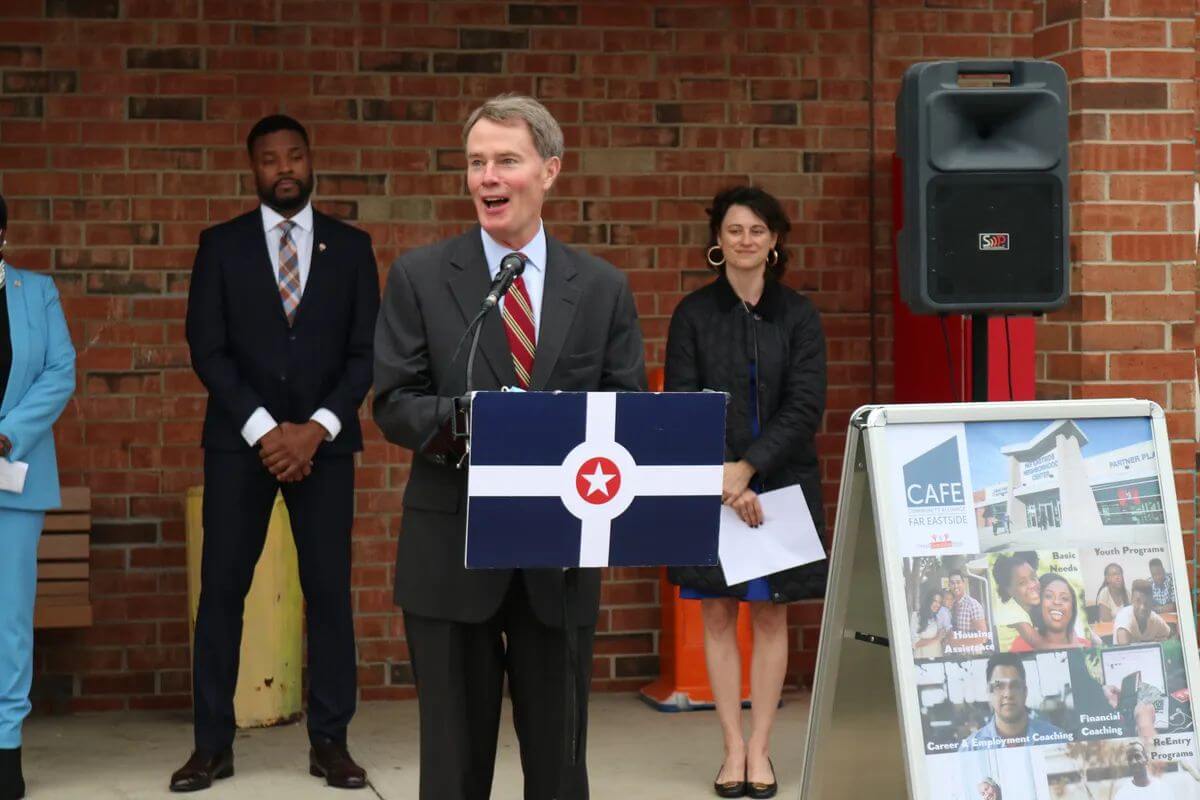
Breaking: The 25-member Indianapolis City-County Council unanimously approved Indianapolis Mayor Joe Hogsett’s $1.56 billion budget proposal for 2024 Monday evening.
Why it matters: The budget includes a record investment in police, increased investment into anti-violence programs and a further increase in capital infrastructure projects. It also creates a new city department, the Office of Equity, Belonging and Inclusion.
By the numbers: The budget includes a $25 million increase in property tax revenue and a $20 million increase in income tax revenue compared to last year.
The big picture: The passage of this budget reinforces the city's commitment to law enforcement, public safety, community-based violence reduction, and neighborhood improvement.
Yes, but: The six minority party members on the council voiced concerns about specific aspects of the budget. Mayor Hogsett is currently seeking a third term and faces Republican Jefferson Shreve in November.
What they're saying: "I’m glad to see the increased funding for public safety, but no amount of money is going to make Joe Hogsett an effective mayor," said Republican businessman and mayoral challenger, Jefferson Shreve.
What's next: The budget will help with the transition from federal to local funding for programs and initiatives. (IBJ)
Untreated Mental Illness Costs Indiana Over $4 Billion Each Year
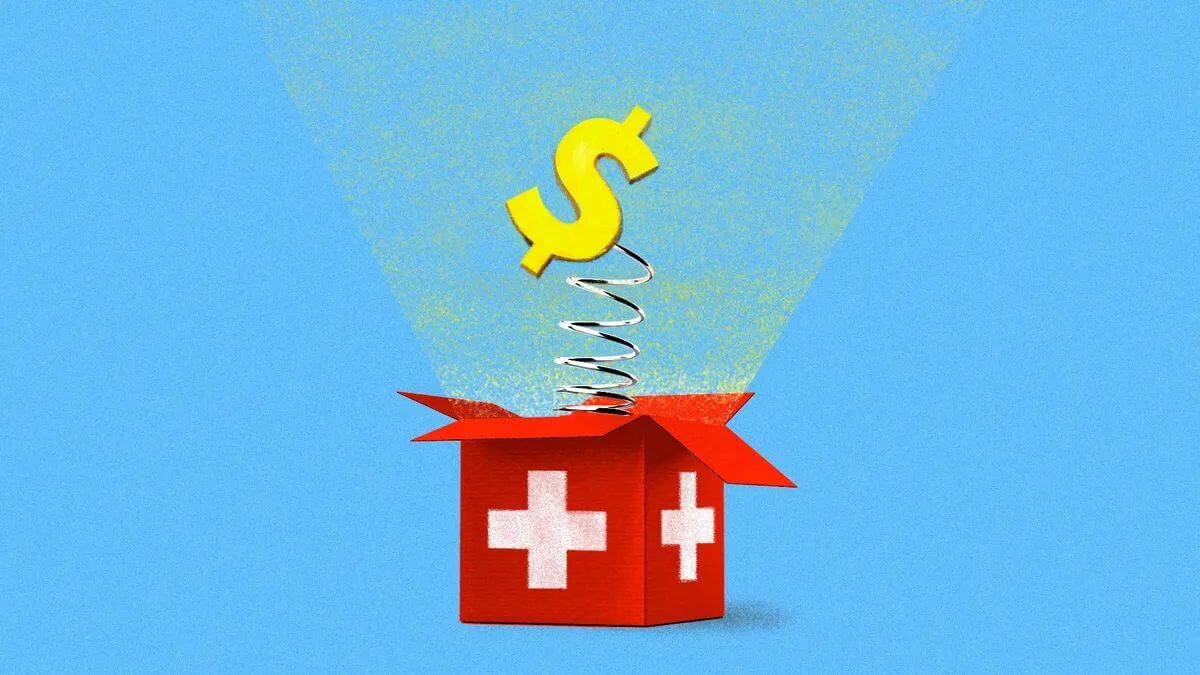
A new study reveals the economic burden of untreated mental illness in Indiana, resulting in $4.2 billion spent annually.
Why it matters: Untreated mental illness poses a significant public health and financial challenge for the state, with a loss of over $600 per person or nearly $1,600 per family each year.
By the numbers: The largest cost is premature mortality at over $1.4 billion, followed by productivity losses at $885 million annually.
The big picture: Individuals with untreated mental illness are more likely to experience other chronic health conditions, such as diabetes and cardiovascular disease.
Yes, but: Investing in interventions that improve access to and delivery of mental health services can reduce the economic burden to the state.
What's next: Strengthening the mental health provider workforce, improving access to services, and reducing barriers to treatment initiation are key steps to address this issue. (News at IU)
Falling Fuel Prices to Reduce Indiana’s Cut of November Gasoline Sales

The falling price of gasoline across the Hoosier State in recent weeks will reduce by nearly 2% the taxes Indiana motorists pay on every gallon they purchase in November.
By the numbers: The applied 7% state sales tax on gasoline purchases will be 20.3 cents a gallon in November, down from 21.5 cents a gallon in October.
The big picture: The declining price of fuel has no impact on Indiana's 34 cents a gallon gasoline tax — which increased according to state law by 1 cent per gallon on July 1 — or the federal gasoline tax of 18.4 cents a gallon that’s not changed since 1993. Altogether, Hoosiers will pay 72.7 cents in taxes, including 54.3 cents in state taxes, for every gallon of gasoline they purchase in November, but it will be a 1.6% reduction from October.
Why it matters: This decrease in gasoline taxes is the first time since August that Indiana's sales tax on gasoline has decreased on a month-to-month basis. (NWI Times)
With Fatal Crashes Up, Interim Roads Committee Ends Without Traffic Safety Recommendations

Nearly 17,000 Hoosiers were killed in motor vehicle crashes in the last two decades — and fatalities continue to trend upward, according to the Indiana Department of Transportation (INDOT). However, a transportation-centric interim committee on Wednesday ended with no related recommendations.
Why it matters: Crashes involving speeding, impaired driving, distracted driving or no seatbelts are more likely to result in death, said Devon McDonald, executive director of the Indiana Criminal Justice Institute (ICJI) agency. Annual recorded violations are generally down since 2019 — but that doesn’t mean Hoosiers are driving more safely, according to McDonald.
The big picture: Designing safer roads and implementing new technologies can help prevent traffic crashes and reduce fatalities.
What they’re saying: “I think having that longer conversation is probably better than a knee-jerk reaction,” Chairman Jim Pressel concluded. “Government moves a lot slower than I’d like it to.” (Indiana Capital Chronicle)
Committee Concludes With Draft Recommendations For Child Care

The third and final meeting of the interim committee on Public Health, Behavioral Health and Human Services concluded with a unanimous vote to approve a draft report of recommendations.
Why it matters: The approval of the draft report signifies progress in addressing child care 'deserts' and increasing employee wages.
The big picture: The report focuses on child care testimony and potential avenues for strengthening child care funding, including treating it as part of local infrastructure and using economic development funds.
What's next: The report will be reviewed publicly, and recommendations will be considered in the upcoming session starting in January.(Indiana Capital Chronicle)
Citizens Energy Seeks to Withdraw Application to Supply Water to LEAP District

Breaking: Indianapolis-based utility company Citizens Energy Group has withdrawn its proposal to supply water to a planned manufacturing district in Boone County.
Why it matters: The withdrawal of the proposal indicates that there have been significant changes in the situation that prompted the company to reconsider its plans.
The big picture: Citizens Energy Group remains committed to regional water supply planning solutions and hopes to continue working with the Indiana Economic Development Corp. and Lebanon to build water utility infrastructure for the LEAP District.
What's next: The utility company can refile a revised request at any time, as it asked the Indiana Utility Regulatory Commission to dismiss the case without prejudice. (IBJ)
White House Asks Congress for $100B to Support Israel, Ukraine, Border Efforts
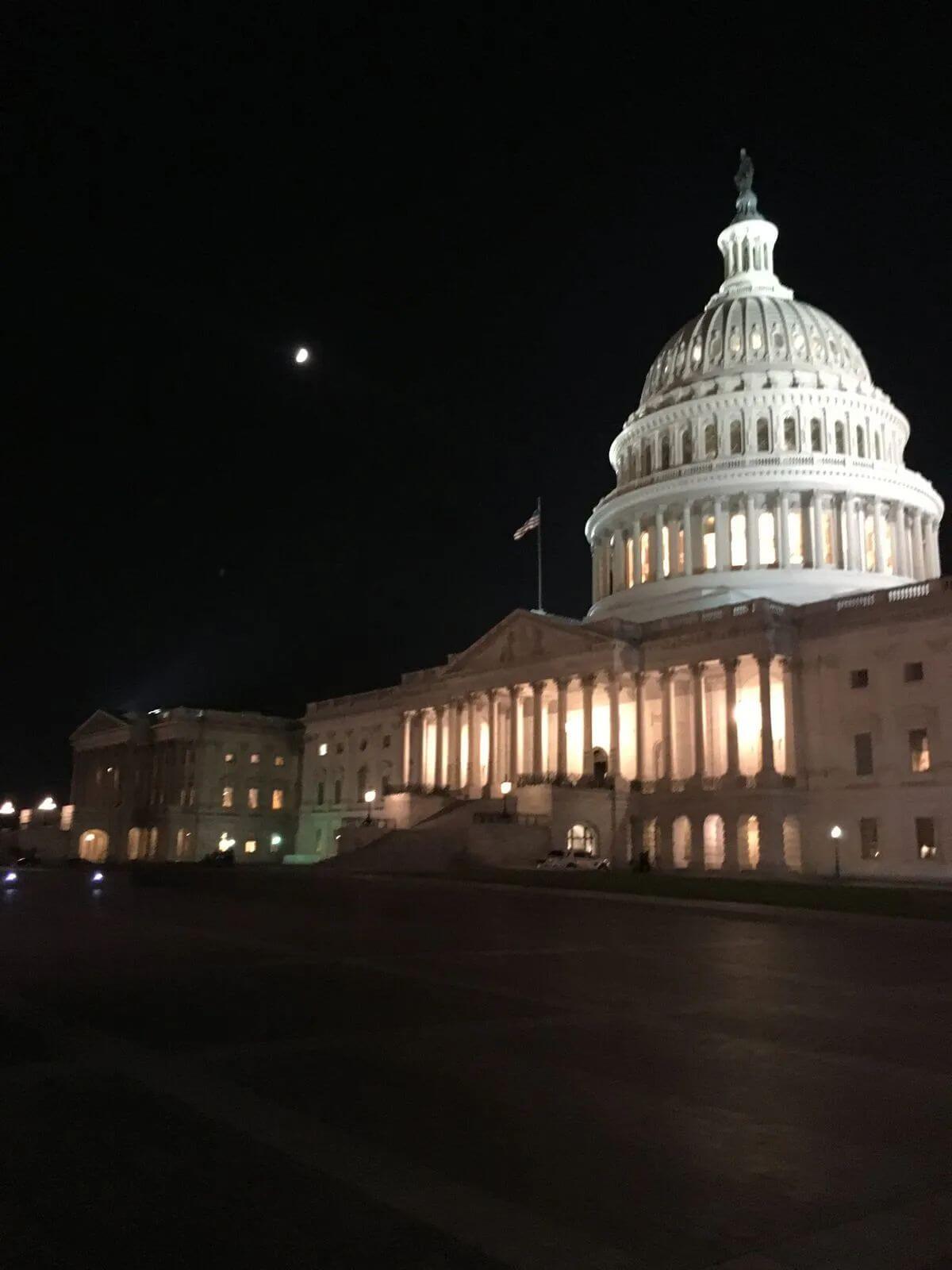
The White House is sending a roughly $100 billion emergency funding request to Congress, covering border security, allies in the Indo-Pacific, and conflicts in Israel and Ukraine.
Why it matters: The funding is crucial for addressing national security priorities and the immigration crisis at the U.S. southern border.
By the numbers: The request includes $61 billion for Ukraine, $14 billion for Israel's defense, $14 billion for the U.S.-Mexico border, $10 billion in humanitarian aid, and $2 billion for Indo-Pacific security assistance.
The big picture: The funding package aligns with Republican priorities and aims to support America's allies and interests abroad.
Yes, but: Opposition to funding Ukraine from a large minority in the House GOP could hinder efforts to package it with assistance for Israel and the border.
What's next: The request faces challenges in the House, but the administration urges Congress to address these priorities in a comprehensive, bipartisan agreement. (The Hill)
New Faces of the 2024 Legislative Session

Rep. Lori Goss-Reaves (R-31) - Portions of Grant and Madison Counties
- Occupation: Professor of social work and director of field placement, Indiana Wesleyan University
- Family: Husband, Eric, five adult children, and five grandchildren
- Took the oath of office in June 2023
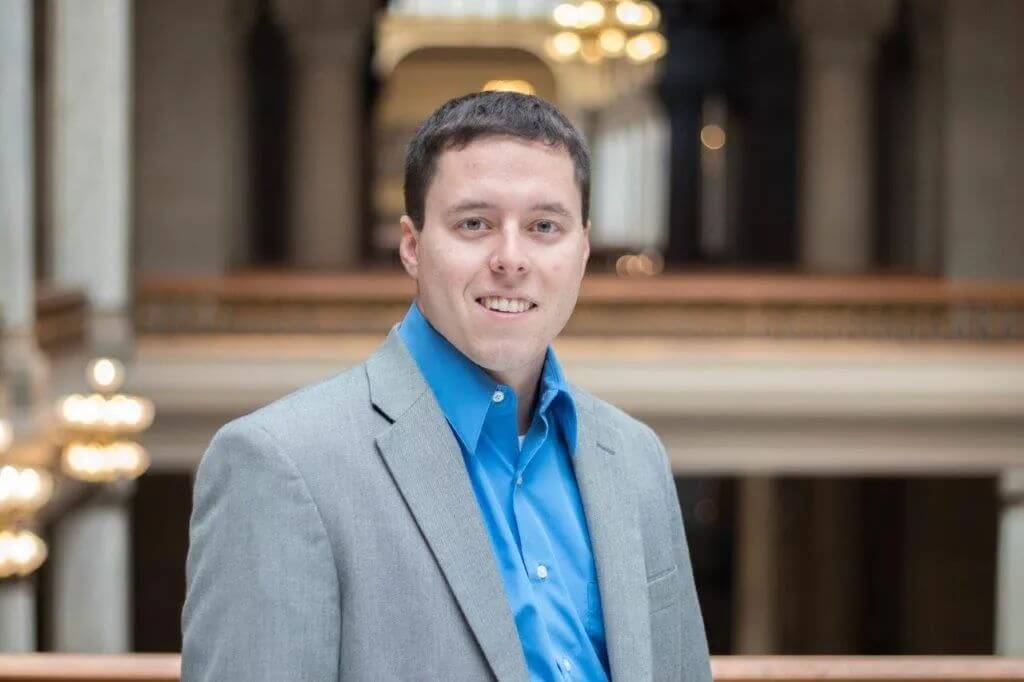
Rep. Alex Zimmerman (R-67) - Portions of Decatur, Jefferson, Jennings, and Ripley Counties
- Occupation: Attorney
- Family: Wife, Kayla, and son, Liam
- Previously served in several roles with the Indiana State Senate, including as legislative assistant, majority legal associate, and deputy majority attorney
- Took the oath of office in July 2023
Sen. Cyndi Carrasco (R-36) - Portions of Johnson and Marion Counties
- Occupation: Vice President and General Counsel at the University of Indianapolis
- Previously served as Deputy General Counsel for Gov. Eric Holcomb, the first female State Inspector General in Indiana, and Director the State Ethics Commission
- Won the caucus to replace the late Sen. Sandlin on October 18, 2023 and will be sworn in around November 1

Sen. Greg Goode (R-38) - Vigo and Clay Counties, and a portion of Sullivan County
- Occupation: State Director for U.S. Senator Todd Young
- Previously served as chief lobbyist for Indiana State University for more than a decade
- Won the caucus to replace Sen. John Ford on October 7, 2023
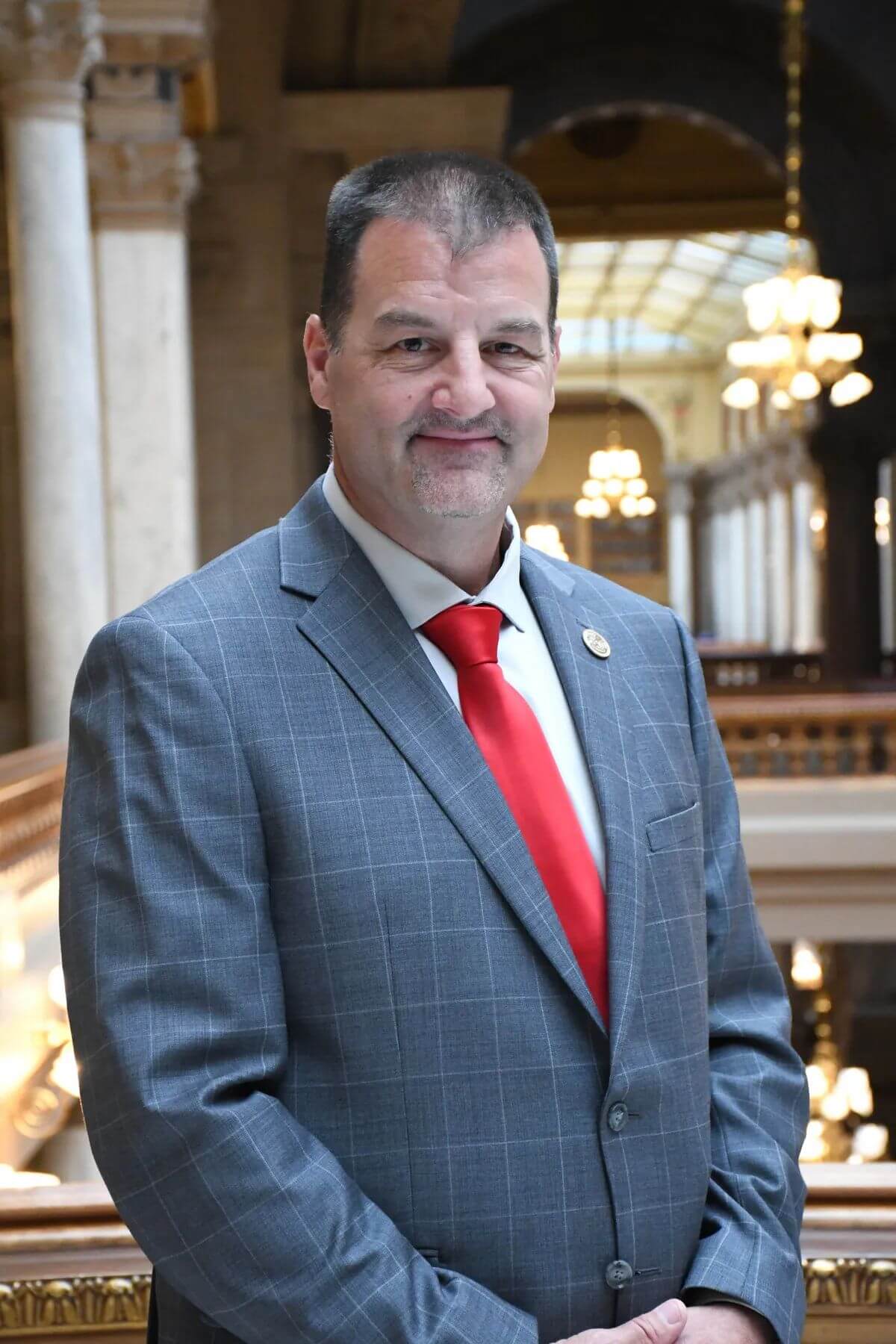
Sen. Randy Maxwell (R-43) - Dearborn, Jefferson, Ohio, Scott, and Switzerland Counties, and portions of Jennings County
- Occupation: CEO of Maxwell Construction, a family-owned Southeast Indiana general contractor and development company
- Family: Wife, Robin, and three children, Alex, Kyla, and Dylan
- Previously served as President of the Dearborn County Homebuilders Association and as an appointee of the Indiana Unemployment Insurance Board
- Took the oath of office in September 2023
Share the Torchbearer Newsletter with Your Network!

Not signed up for our weekly newsletter? Sign up today!
Important Dates

Tuesday, October 24th - Pension Management Oversight Interim Study Committee @ 1pm
Wednesday, October 25th - Commerce and Economic Development Interim Study Committee @ 9am
Wednesday, October 25th - Corrections and Criminal Code Interim Study Committee @ 11am
Wednesday, October 25th - Drainage Task Force @ 2pm
Wednesday, November 1st - Commerce and Economic Development Interim Study Committee @ 9am
Wednesday, November 1st - Government Reform Task Force @ 1:30pm
Monday, November 13th - Health Care Cost Oversight Task Force @12:00 pm
Tuesday, November 14th - Land Use Task Force @ 9am
Wednesday, November 15th - Funding Indiana’s Roads for a Stronger, Safer Tomorrow Task Force @ 10am
Wednesday, November 15th - Medicaid Oversight Committee @ 2pm
Monday, November 20th - State and Local Tax Review Task Force @ 10am
Tuesday, November 21st - Organization Day
Monday, January 8th - Anticipated 2024 legislative session start date
